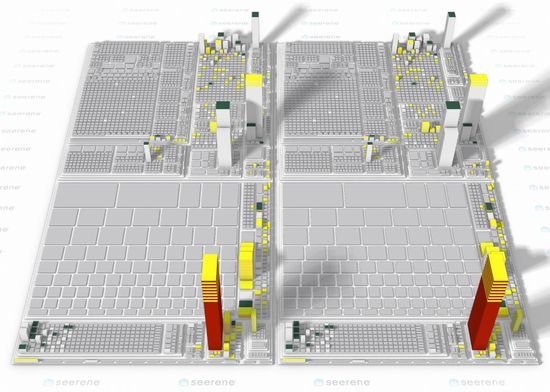
In this MOOC, we explore concepts and techniques of advanced analytics for ecosystems around software systems and software development processes. Big data and big data analytics are to become key sources of innovation in industry and society – in this course we discuss, how advanced analytics in the scope of software can be applied to boost effectiveness of software development within their corresponding ecosystems. With "software analytics" we refer to recently innovated techniques from software analysis, software mining, software visualization, visual analytics, and predictive analytics that all aim at giving insights into information about complex software systems, their correlated development processes, and their evolution. To this end, all common, traditionally separated information sources in these ecosystems can be gathered, related, and integrated. The ultimate goals include to provide not only software engineers but also all other stakeholders (e.g. IT consultants, IT managers) better instruments to monitor, comprehend, discuss, and steer software development activities such as for vendor benchmarking, team benchmarking, and handling technical debts. In particular, we investigate "software maps" as general-purpose, powerful visual analytics instruments.
Мова: English
Інформація про курс
In this MOOC, we explore concepts and techniques of advanced analytics for ecosystems around software systems and software development processes. Big data and big data analytics are to become key sources of innovation in industry and society – in this course we discuss, how advanced analytics in the scope of software can be applied to boost effectiveness of software development within their corresponding ecosystems. With "software analytics" we refer to recently innovated techniques from software analysis, software mining, software visualization, visual analytics, and predictive analytics that all aim at giving insights into information about complex software systems, their correlated development processes, and their evolution. To this end, all common, traditionally separated information sources in these ecosystems can be gathered, related, and integrated. The ultimate goals include to provide not only software engineers but also all other stakeholders (e.g. IT consultants, IT managers) better instruments to monitor, comprehend, discuss, and steer software development activities such as for vendor benchmarking, team benchmarking, and handling technical debts. In particular, we investigate "software maps" as general-purpose, powerful visual analytics instruments.
As precondition, our interested learners for this course shall have general knowledge about software development, its processes and procedures, and they shall have some experience in IT-systems development or software maintenance.
This course is especially interesting for
• IT project managers
• IT consultants
• Software developers, software testers and software engineers
• Software architects and modelers
• Parties responsible for financing the IT-development in a company
The workload of this course is equivalent to 2 ECTS credits.
Зарахувати мене на цей курс
Слухачі
Вимоги до сертифіката
- Отримайте Відомість досягнень, набравши не менше 50% від максимальної кількості балів за всі оцінювані завдання.
- Отримайте Підтвердження участі, виконавши не менше 50% матеріалу курсу.
Для отримання додаткової інформації див. інструкцію з отримання сертифіката.
Цей курс запропонований

Jürgen Döllner studied mathematics and computer science at the University of Siegen, Germany (1987-1992). He got his Ph.D. in computer science from the University of Münster, Germany, in 1996; he also received here his habilitation degree in 2001. In 2001 he became full professor for computer science at the Hasso-Plattner-Institute at the University of Potsdam, where he is leading the computer graphics and visualization department.
His major research areas are in computer graphics, geoinformatics, software engineering. In particular, the reserach is focused on concepts, tools, and techniques for complex software systems and graphics-based systems. His research topics include geovisualization (3D real-time rendering, 3D non-photorealistic rendering, web mapping, 3D spatial analysis, virtual 3D city models, and 3D virtual environments) as well as software visualization and visual analytics for software engineering (e.g., visualization of complex hierarchies, activities and dynamics, system evolution, software maps, and system metrics).
He is author of more than 200 papers in computer graphics and visualization (for an overview of publications see www.hpi3d.de). He serves as reviewer to a number of international and national journals, conferences, and workshops.